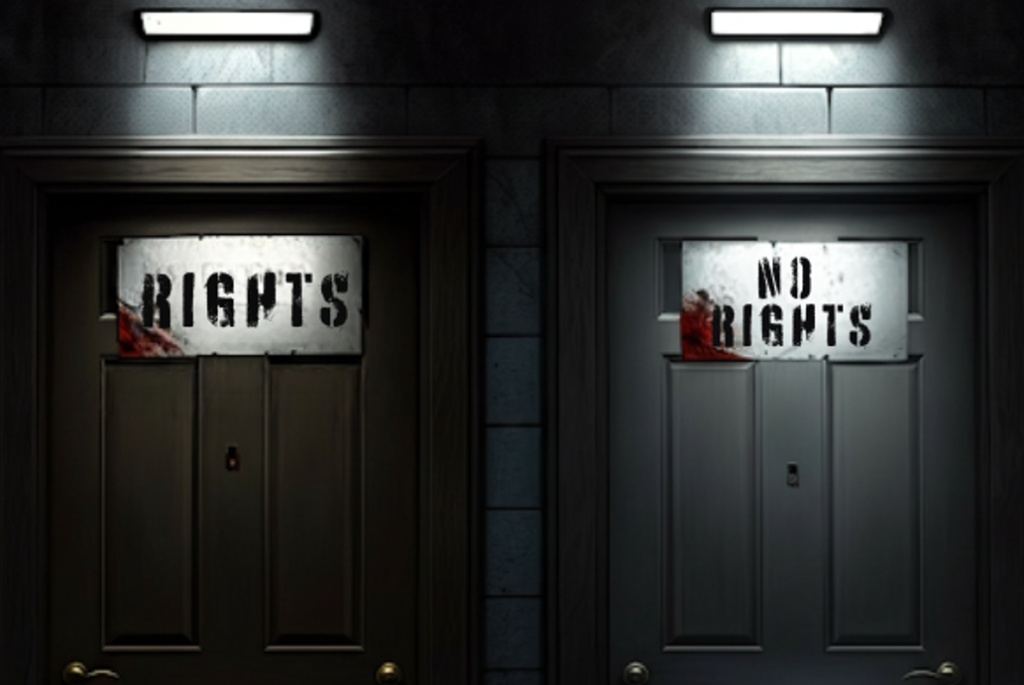In the contemporary landscape of American politics, the concept of individual rights has become precariously entangled with governmental authority, a trend illuminated by John W. Whitehead and Nisha Whitehead in their analysis of the Deep State’s tactics. This evolving dynamic suggests that rights are being reconfigured from inherent entitlements to contingent privileges, susceptible to state discretion. As the authors assert, the manipulation of citizens through fear—stoked by purported threats to national security—has been a recurring theme enabling the government to leverage crises for expansive power grabs. They argue that this approach blurs the line between legal rights and privileges, particularly evident in government responses to situations like the War on Terror and the War on COVID-19, which have led to significant erosions of civil liberties.
The implications of these power grabs are profound, particularly concerning the treatment of non-citizens. The authors warn that positioning individuals, specifically illegal immigrants, as outside the realm of constitutional protections undermines the foundational ideals of universal rights. This perspective not only risks establishing a hierarchy of rights based on arbitrary classifications but also leads to a dangerous environment where government can discriminate against any group it deems unworthy of rights. The suggestion is that the looming division will not necessarily correlate with legal status but rather alignment with the government’s interests, which could ultimately threaten any citizen who falls out of favor with the state.
Drawing on historical precedence, the Whiteheads illustrate that the erosion of rights often begins with targeted groups and gradually extends to wider populations. This pattern, marked by selective application of laws and the marginalization of certain communities, demonstrates how the government can craft a narrative that permits the infringement of rights under the guise of public safety. Throughout history—be it the internment of Japanese Americans during World War II or the systemic oppression faced by marginalized groups—the misguided belief that certain people do not deserve the same protections has been famously warned against—a sentiment echoed by Martin Niemöller in his cautionary parable detailing the stages of persecution.
Crucially, the authors highlight the lack of civic knowledge among the American populace as a key enabler of governmental overreach. With a significant portion of citizens unable to articulate their constitutional rights, the potential for abuse increases. Moreover, the article posits that ignorance within the ranks of government officials—who are sworn to protect the Constitution—compounds the crisis. Legal rulings, such as the Heien v. North Carolina case, showcase how legal misunderstandings can lead to systematic violations of rights, as officials exploit their ignorance to justify actions that contravene the law.
The dissolution of rights into privileges fundamentally undercuts the fabric of society built upon the rule of law, which necessitates that everyone is held to the same standards without bias. This stratification leads to a societal divide where those deemed ‘lawful’ enjoy protections while others are left vulnerable, fostering an environment ripe for exploitation and dissent. The chilling consequences extend to a culture where free speech and dissent are stifled, as citizens fear repercussions for standing against injustices. It creates a climate of compliance, where people hesitate to advocate for their rights out of fear of government scrutiny.
Ultimately, the authors contend that the degradation of constitutional rights presents a dire warning for the future of American democracy. They remind readers that themes of privilege and disenfranchisement are not new; rather, they echo throughout history, signaling that the notion of “rights” may be redefined at any moment depending on the whims of those in power. As articulated by George Carlin, true rights are intrinsically unassailable; once they can be stripped away, society’s foundation crumbles under the weight of tyranny. Thus, the fundamental accountability of both citizens and officials is to recognize, uphold, and vehemently protect the principles enshrined in the Constitution, lest rights become nothing more than privileges granted or revoked at the government’s discretion.

